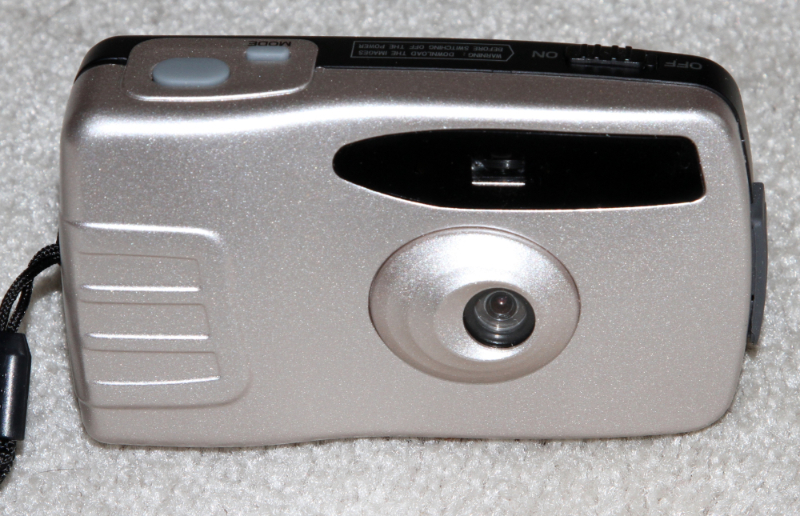
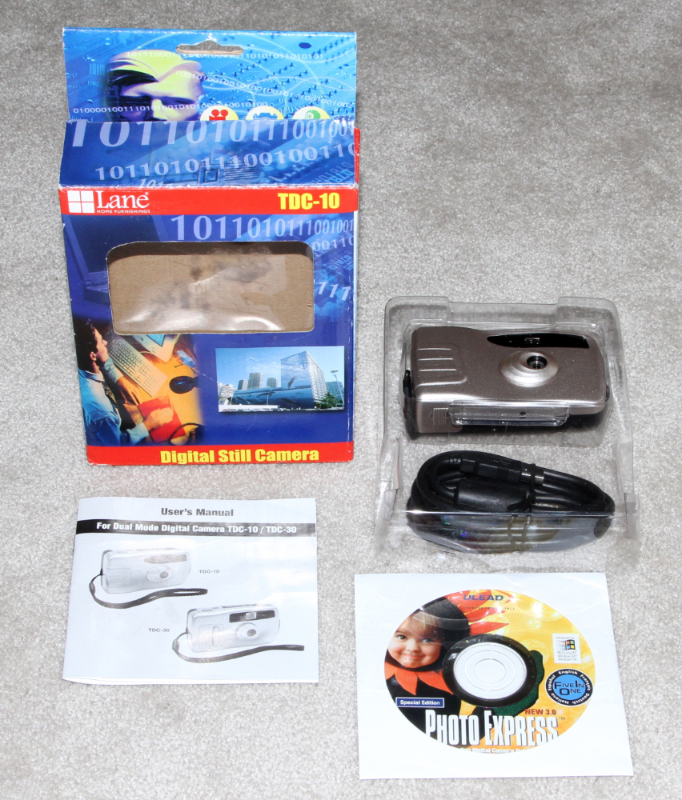
1998 L-N R


![]()
LANE TDC-10 - 1998/2000.
This previously unknown camera was apparently distributed as a
promotional item by Lane Home Furnishings. It was assembled by a
company in China and the manual also applies to a TDC-30 model.
We could find nothing on the internet concerning this camera and assume
that it may have been sold under a variety of brand names as a
beginner's or child's camera. It was also sold under the
MACAT MDC-10 model name. (see below) It requires a Windows 98
operating system, but the material on the CD that came with it, labeled
"Special Edition," is dated 2000, so the camera was probably produced
over several years for a variety of vendors. Resolution: 352 x
288 pixels. Lens: 6.4mm/F3.0. Internal storage of 20 photos
at 352 x 288 or 80 photos at 176 x 144
https://danadandan-blogspot-com.translate.goog/2007/02/blog-post_299.html?_x_tr_sch=http&_x_tr_sl=zh-TW&_x_tr_tl=en&_x_tr_hl=en&_x_tr_pto=sc
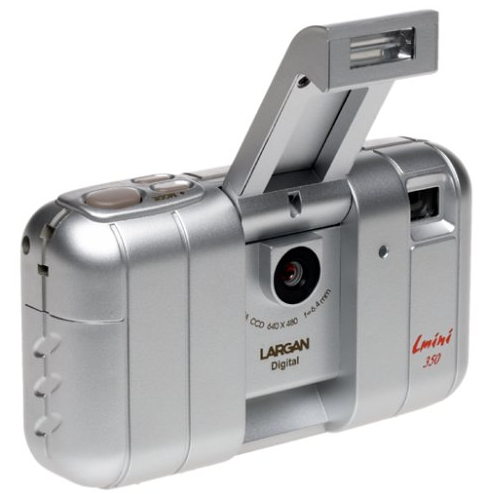
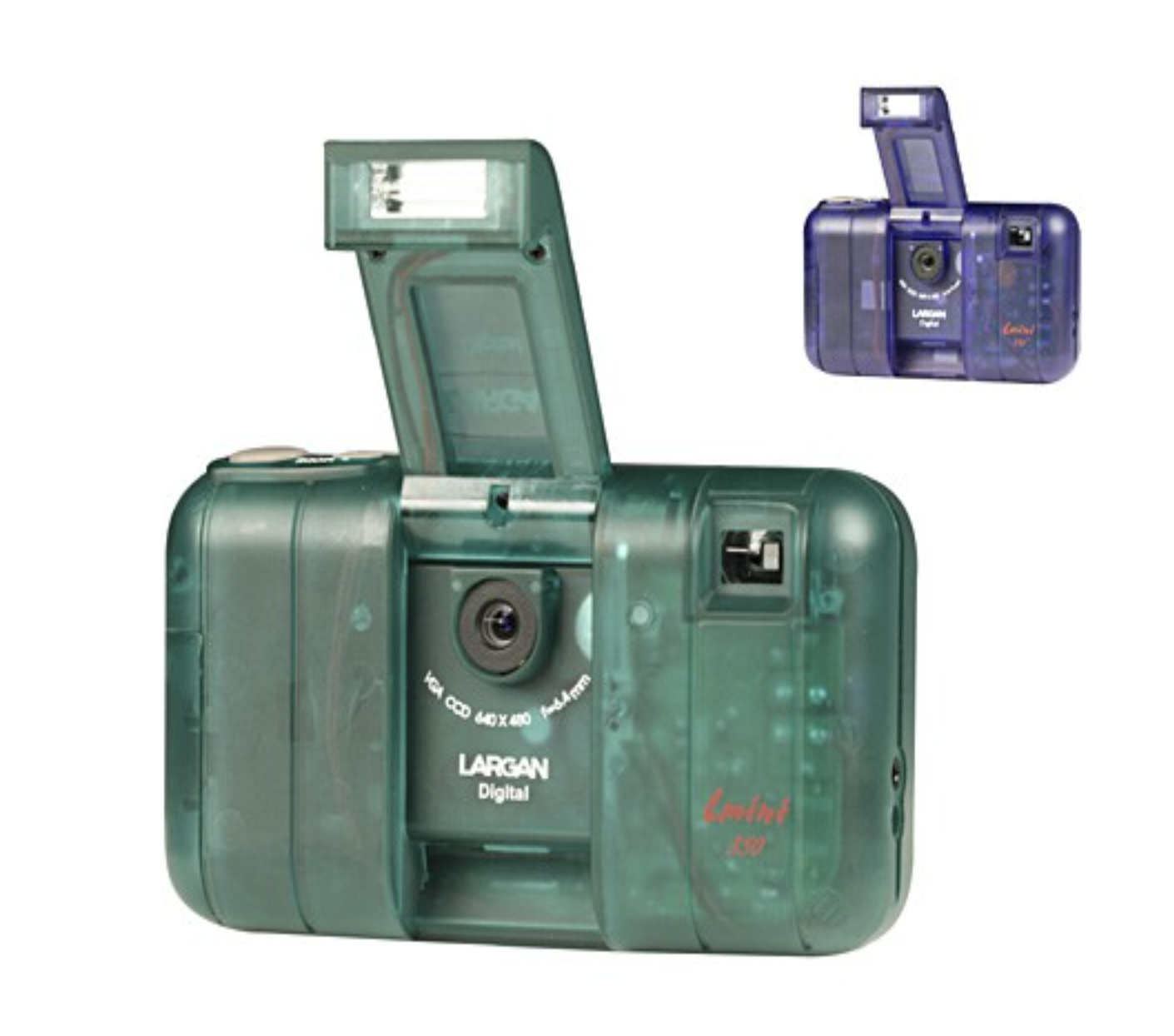
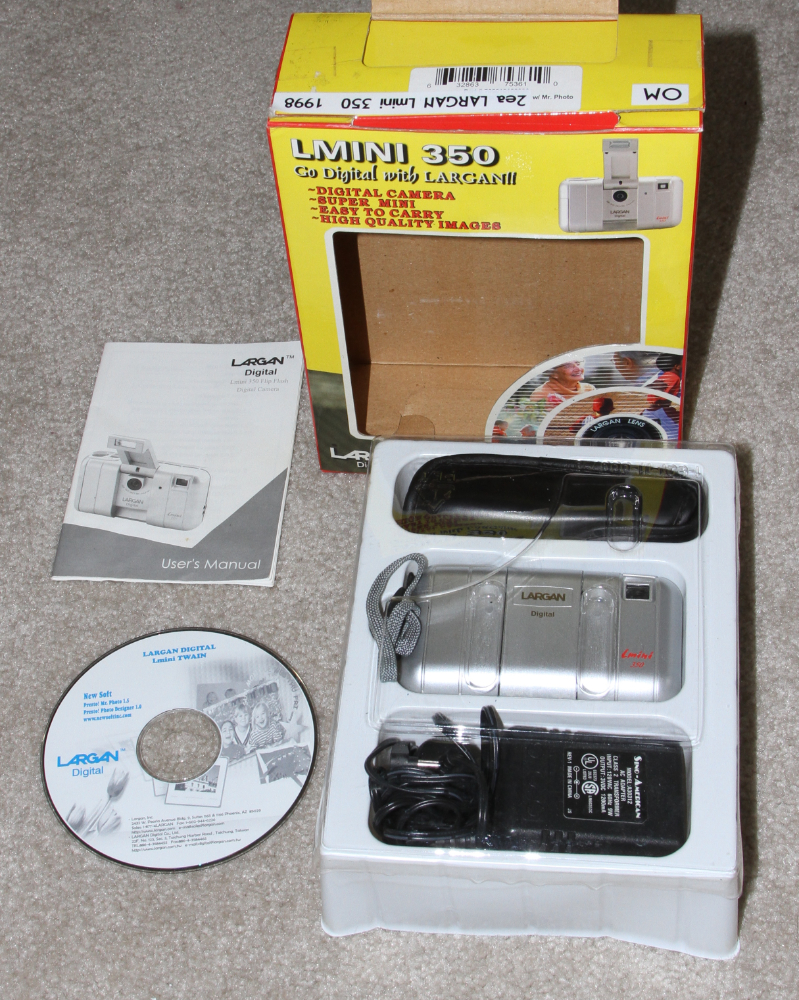
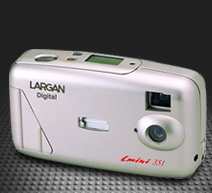
LARGAN Lmini 351 - 1998. First shown at PMA 98. CCD
640 x 480 pixels. 2MB internal memory. F 4.5/42mm
lens. Shutter 1/30 sec to 1/10,000 sec. Flash. MSRP $150. (Rare on U.S.eBay)
https://www.digitalkameramuseum.de/en/cameras/item/largan-lmini-353
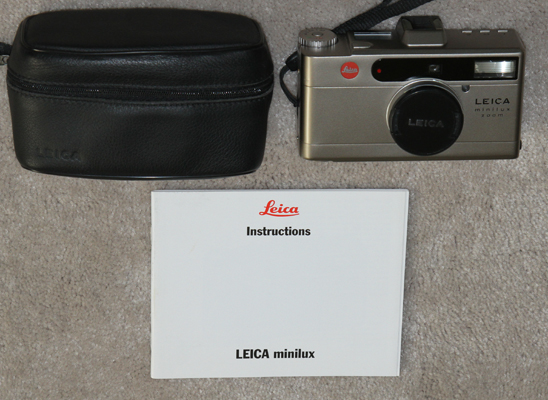
![]()

LEICA MINILUX ZOOM - 1998. The Minilux had an original MSRP of $999 in 1998. That would be about $1,330 in 2010 dollars, a very expensive little 35 mm camera. Lens 35 - 70 mm. Shutter 1-1/250 sec, T and B. This Minilux in mint condition was given to me by my beautiful niece, Faa.
http://www.kenrockwell.com/leica/minilux-zoom.htm
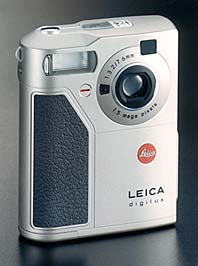
![]()
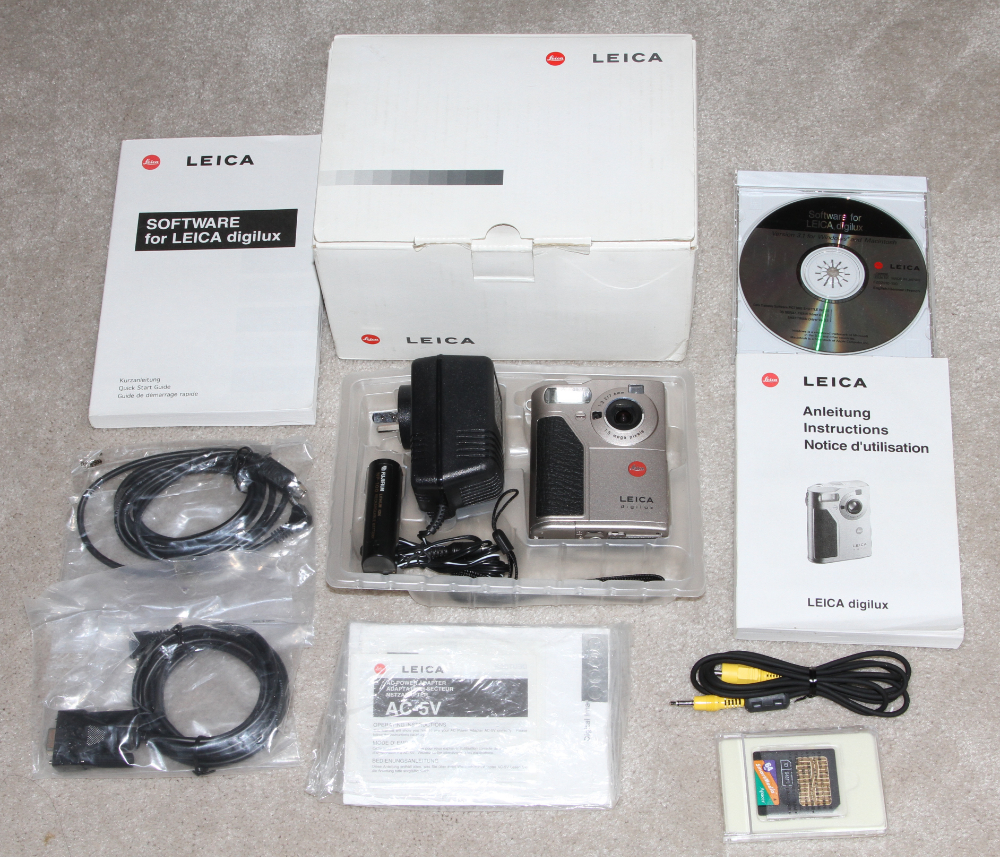
LEICA
DigiLux (Fuji MX-700) - 1998.
Leica's first digital camera. Few were produced and are thus
seldom seen on eBay. Most are with collectors or in museums.
Original MSRP was $999 (about $1,431 in 2013 dollars). 1/2-inch
1280 x 1024 pixel CCD. ISO 100. F/3.2 35mm
autofocus
lens. Shutter 1/4 to 1/1000 second.
https://en.wikipedia.org/wiki/Leica_Digilux_1
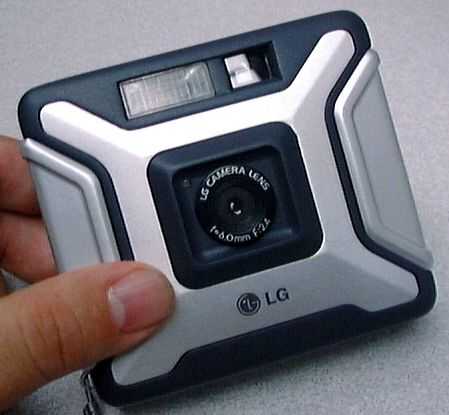
LG
ELECTRONICS ArtShot LDC-F10 - 1998. Shown
at CeBIT '98. 1/4-inch 640 x 480 pixel CCD. NOT MARKETED.
http://pc.watch.impress.co.jp/docs/article/980327/cebit_4.htm
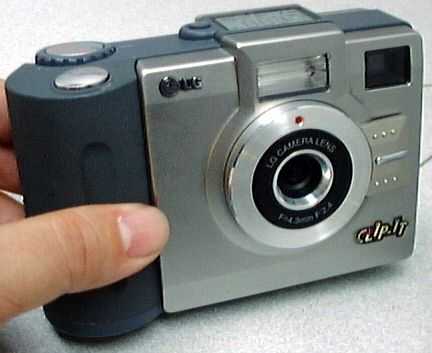
LG
ELECTRONICS ArtShot LDC-F30 - 1998. Shown
at CeBIT -98. 1/4-inch
640 x 480 pixel CCD. NOT MARKETED.
http://pc.watch.impress.co.jp/docs/article/980327/cebit_4.htm
https://www.digitalkameramuseum.de/en/prototypes-rarities/item/lg-ldc-f30
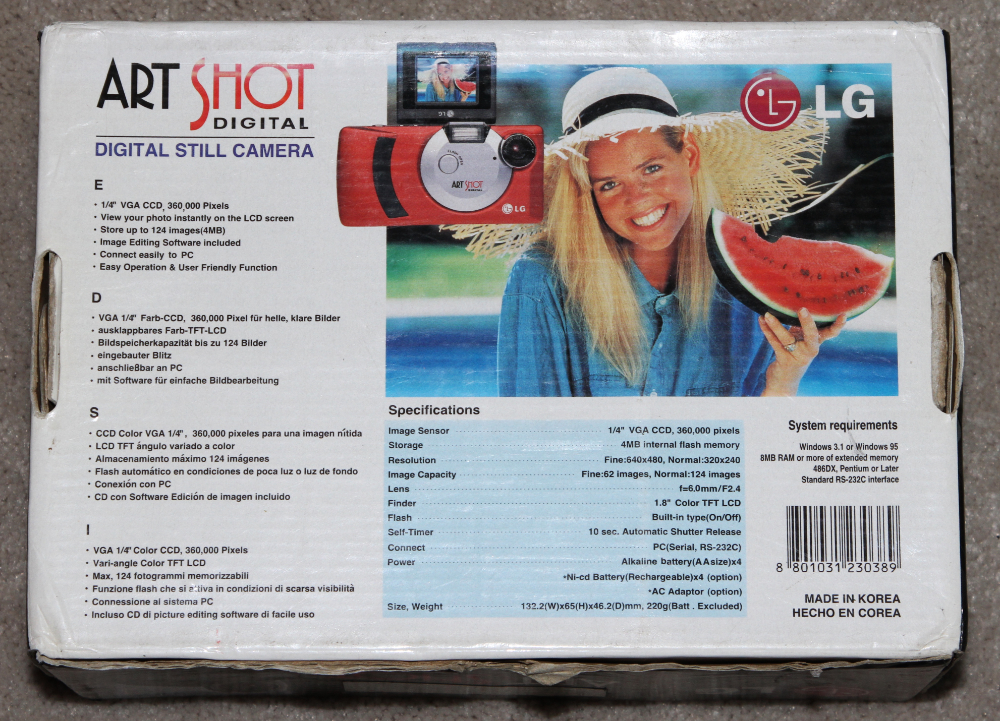
LIMITED TOO BLING DIGITAL CAMERA - 1998.
Digital 3-IN-1 camera -
stills, video and web cam. 152 photo internal storage. VGA
640 X 480
pixels. Windows 98. This is one of many made in China
inexpensive
digital cameras that have begun appearing on U.S. eBay in
2019/2020.
Some are very old and rare whereas others are common and may still be
in production. Limited Too Bling cameras seem to be in the latter
category. The above camera appears to be an early model and the
plastic package is yellow with age, but others on eBay indicate that
newer Bling models may or may not still be in production with new
shapes and packaging, but similar specs. Little information is
available on the web concerning these cameras. Of course, the
same
cameras may have or are being sold under other brand names. Limited Too
is a seller of children's clothing now and we're not sure of what their
current digicam marketing status is, if any. The URL below indicates
that cameras were sold by Limited Too in the 90's. MSRPs
seem to have
been around $40. The one above had a sticker on the back for
$24.90,
but we purchased it on eBay from oldpeddlarlady for $9.99. The
attached thank you note (see above) was the nicest we have ever
received from a seller even though for one of the least expensive
cameras we have ever purchased.
http://forevertwentysomethings.com/2014/11/06/the-top-15-things-that-limited-too-sold-in-the-90s/
MACAT
MDC-10 - 1998. This previously unknown camera is a twin of the Lane
MDC-10 shown above. Both were assembled by a company in China and the
manual also applies to a TDC-30 model. We could find nothing on the
internet concerning these two camera and assume they have been sold
under a variety of brand names as a beginner's or child's camera. It
requires a Windows 98 operating system, but the material on the CD that
came with it is dated 2000, so the camera was probably produced over
several years for a variety of vendors. Distributed by Cobra Digital.
Shenzhen Bluebird Photoelectric Co., Ltd. seems to be the
manufacturer. Resolution: 640x480 pixels. Lens: 6.4mm/F3.0. Internal
storage of 26 photos at VGA. (Rare on U.S. eBay)
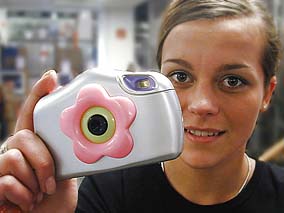
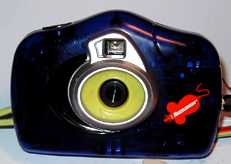
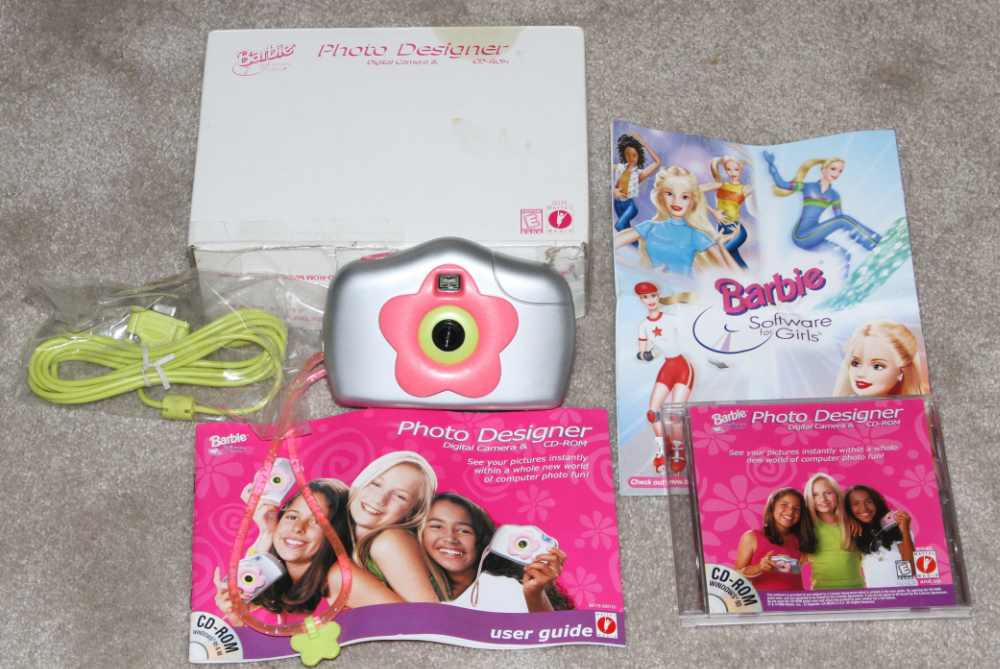
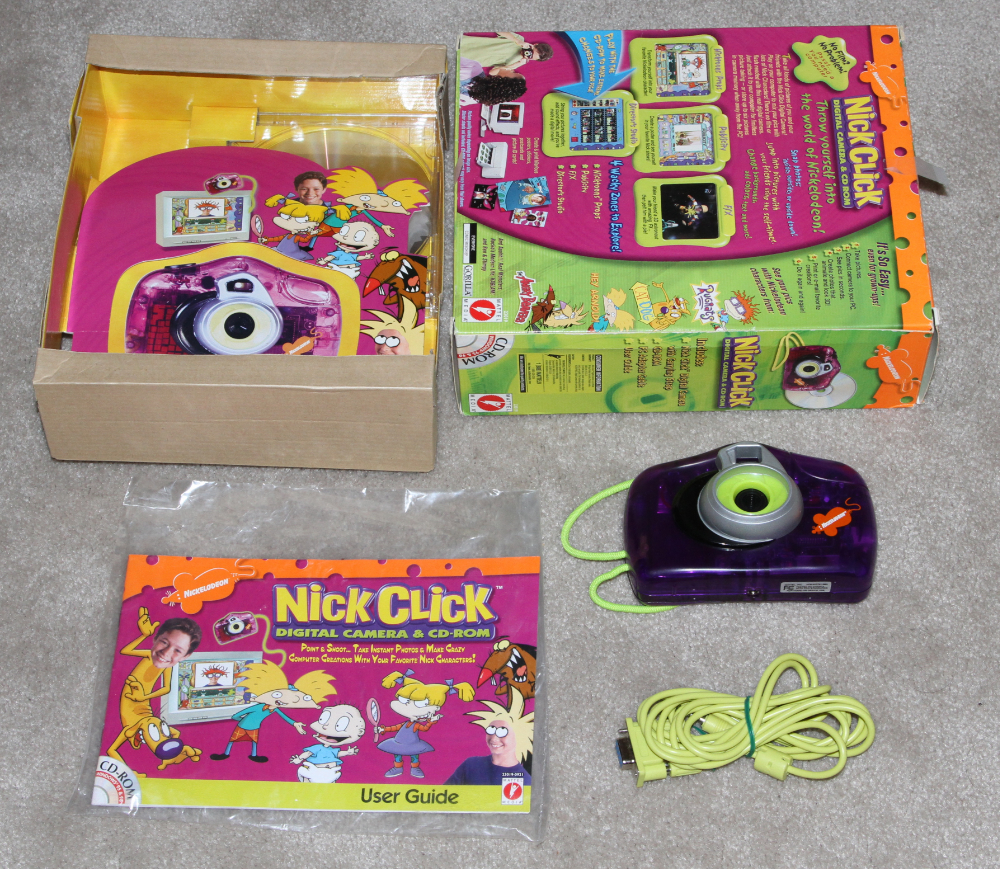
![]()
![]()
MATTEL
Barbie Cam and Nick Click - 1998. These cameras were made in China for Mattel. Unfortunately
for collectors, Mattel chose not to package their cameras as almost all
other digital camera manufacturers do. The packaging was such
that it had to be partially destroyed in order to remove the contents
and thus could not be repackaged as originally purchased. 160
x 120 pixel CMOS sensor. Fixed-focus lens. About $70
(Barbie Cam), $30 (Nick Click).
http://www.superkids.com/aweb/pages/reviews/camera/1/nick/merge.shtml
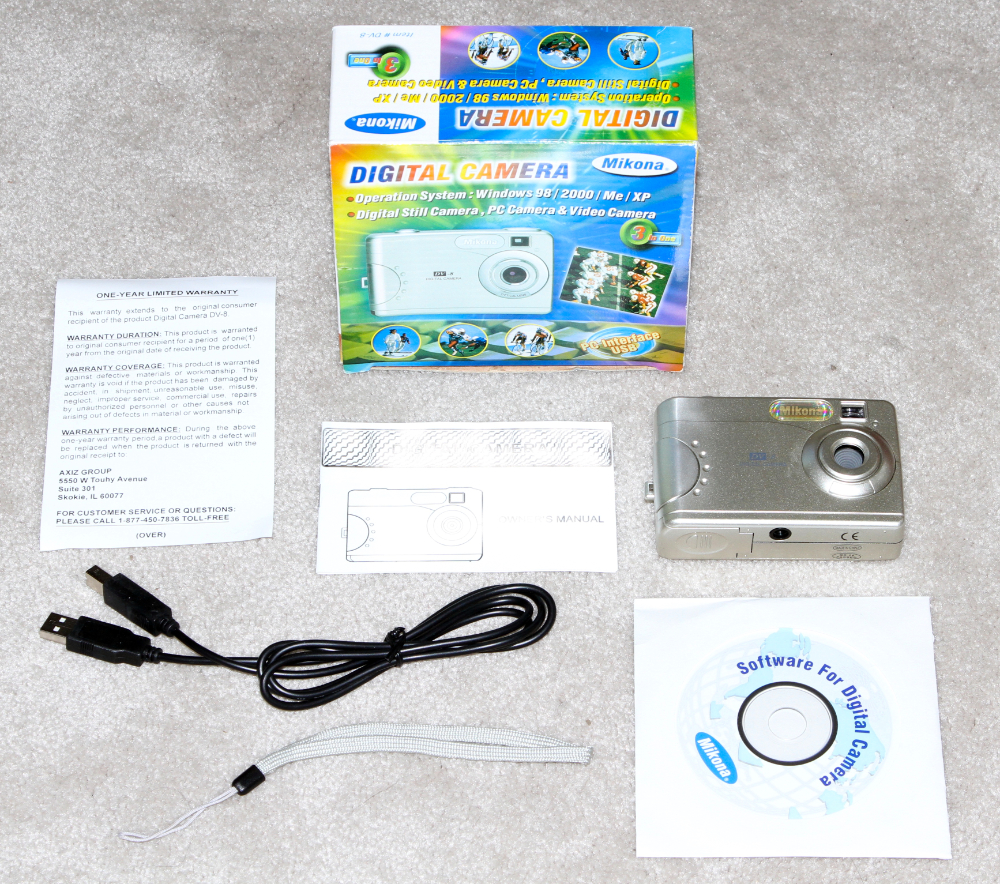
MICROTECH CAMERAMATE - 1998. The CameraMate was the first card reader available with a CompactFlash Type II slot to accomodate the new IBM Microdrives without the need of the PCMCIA adapter. It also had a SmartMedia slot and accepted either 3.3v or 5v cards. The CameraMate flash connected to any USB-enabled Windows 98/98SE, ME or 2000 PC or Macintosh computer. It also supported Windows 95.
https://www.tampabay.com/archive/2000/02/07/microtech-usb-cameramate/
MICROTEK EYESTAR - 1998.
One of many web cams available during that time period. Still image capture CCD 640 x 480, 320 x 240,
160 120 pixels. Windows 95. Made in Taiwan.
https://www.fixya.com/support/p250264-microtek_eyestar_u2s_webcam
https://en.wikipedia.org/wiki/Microtek
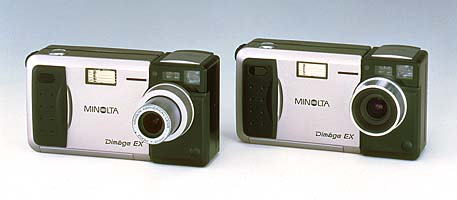

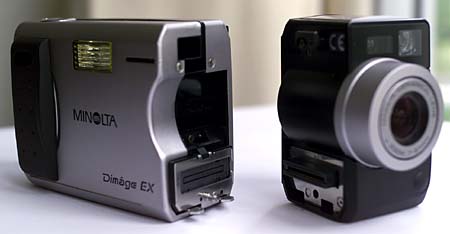
![]()
MINOLTA Dimage
EX 1500 Zoom and Wide Angle - 1998.
Shown at Photokina '98, marketed in 1999. The most distinguishing and unique
feature of this camera was the detachable lens/CCD/viewfinder assembly (the
black right hand quarter in the image shown). 1/2-inch 1344 x 1008 pixel CCD.
ISO 125. F/1.9 28mm (wide angle) autofocus lens and F/3.5 38mm - 105mm
zoom lens (MSRP $799). Alternatively, you could make use of the detachable
lens feature and purchase the wide "add-on lens" at around US$350,
providing 28mm and 38mm to 105mm. Shutter 1/2 to 1/400 second.
http://www.dpreview.com/reviews/minolta1500/
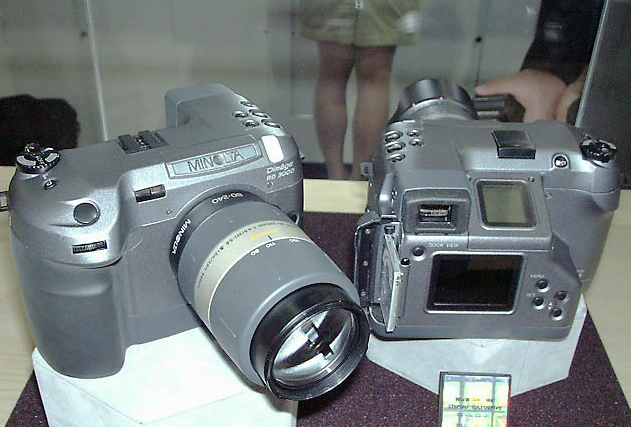


MINOLTA RD3000 Prototype - 1998.
Prototype shown at Photokina 1998, but not marketed until 2000. First
D-SLR to use lenses other than those built for 35mm film cameras (APS).
2 x 1.5 Megapixel CCD's = 2.7 Megapixel image (1,984 x 1,360). MSRP
$3,240. First digital camera with a split screen two-plate imaging system.
http://www.dpreview.com/news/9909/99092102rd3000.asp
https://www.digicammuseum.de/gechichten/erfahrungsberichte/1928-bis-2018-90-jahre-minolta-update/
https://www.digitalkameramuseum.de/en/cameras/item/minolta-dimage-rd-3000
https://www.digitalkameramuseum.de/en/prototypes-rarities/item/minolta-dimage-rd-3001
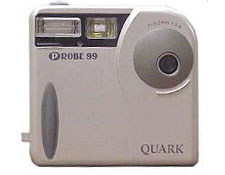
![]()
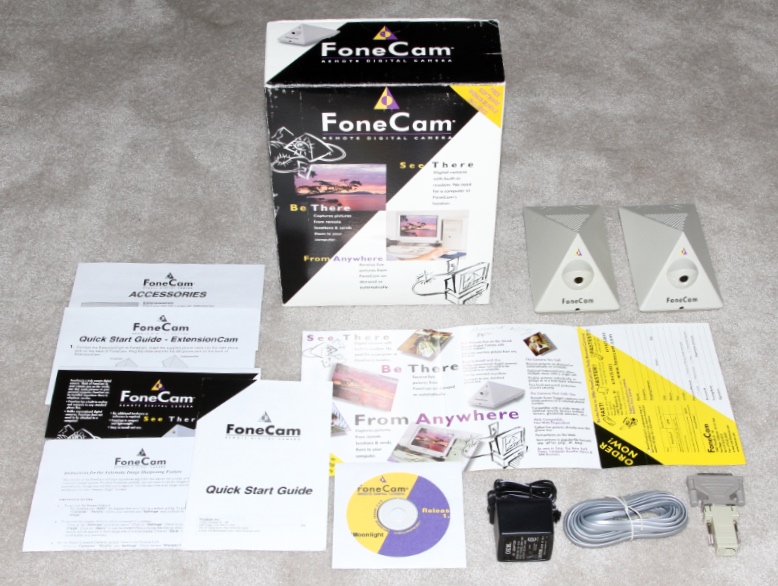

MOONLIGHT
PRODUCTS FONECAM - 1998.
The FoneCam was a digital color still camera
with a 14.4-Kbps modem. 320 x 240 pixel CCD. Lens 3.6mm,
f2.0.
Windows 95. The FoneCam could be connected directly to a computer
using a serial cable or remotely with the modem and a standard phone
line. It could be set up anywhere that had a phone line and a
power
supply. It could capture images on demand or on schedule and
transmit
them to a computer. The example shown above included the optional
ExtensionCam ($299) which allowed monitoring a second area.
Although the FoneCam was advertised as easy to
install and use, the manual was 77 pages long on a CD which could be
printed out as a PDF document if you wished. They advertised "You
can set one up on the kitchen counter and keep track of your
appliances. Or you can check in on your weekend home. If you live near
a freeway, you could set one up for personalized traffic updates, or
point one at a favorite vista and escape the workday
vicariously." MSRP $372.95. Computer
World 30 Nov 1998 Vol. 32, No. 48, page 82.
http://www.innovationhouse.com/products/fonecam.html
https://www.latimes.com/archives/la-xpm-1998-dec-23-cl-56688-story.html
http://content.time.com/time/magazine/article/0,9171,989267,00.html
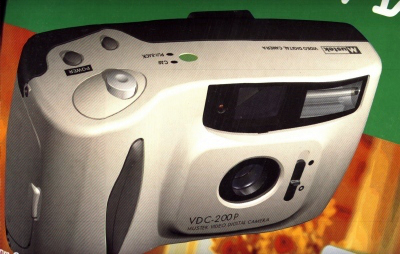
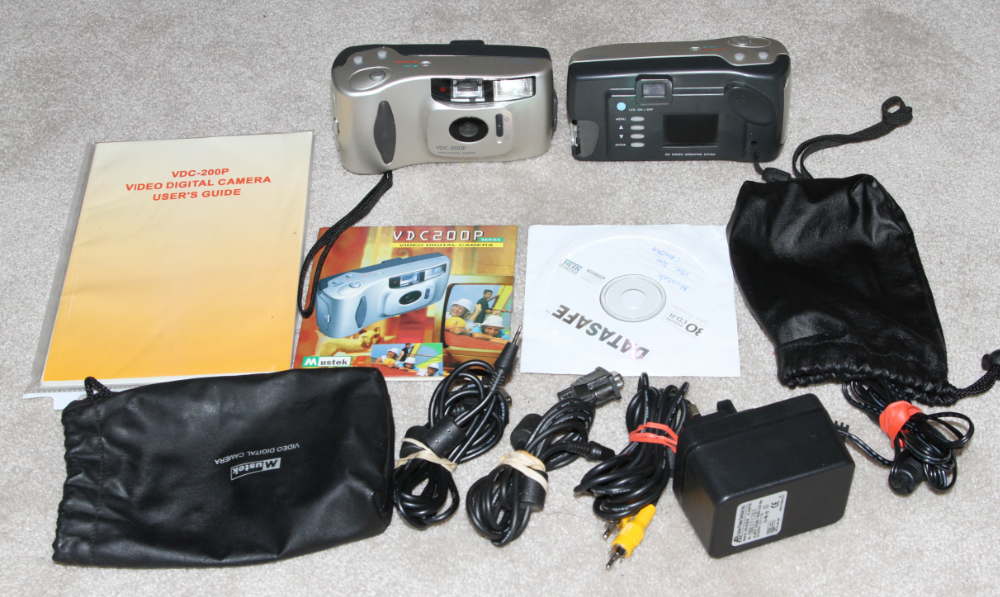
![]()
MUSTEK VDC 200P (1997) and 210P - 1998. Appear to be exactly the same as each other as well as the VDC 200. Both seem to have been available in silver or white.
https://www.digitalkameramuseum.de/en/cameras/category/mustek
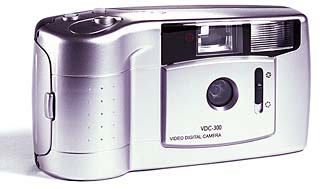
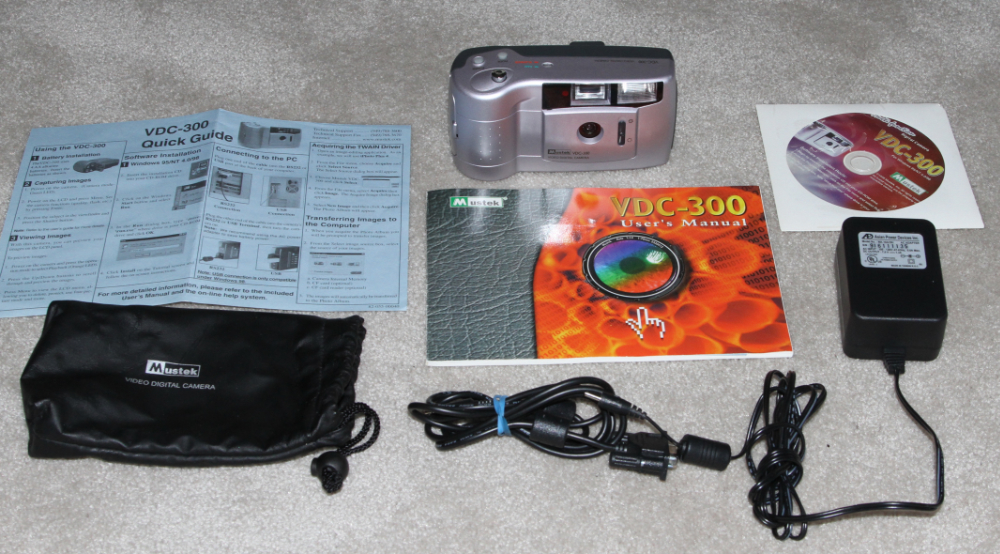
![]()
MUSTEK
VDC 300 - 1998. 1/4-inch
640 x 480
pixel
CCD. F/2.8 and F/8 fixed-focus lens. Shutter 1/30 to 1/6000
second. 2MB built-in memory, will take 4MB CF card.
https://www.digitalkameramuseum.de/en/cameras/category/mustek
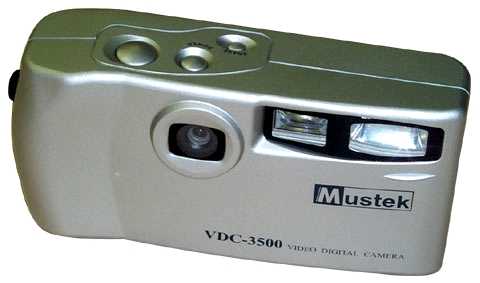
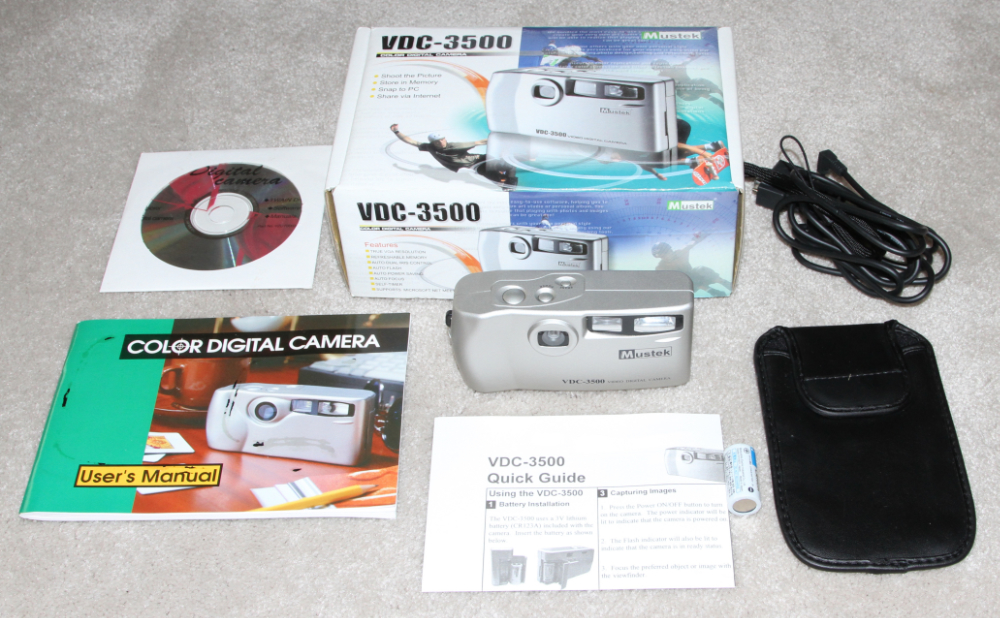
![]()
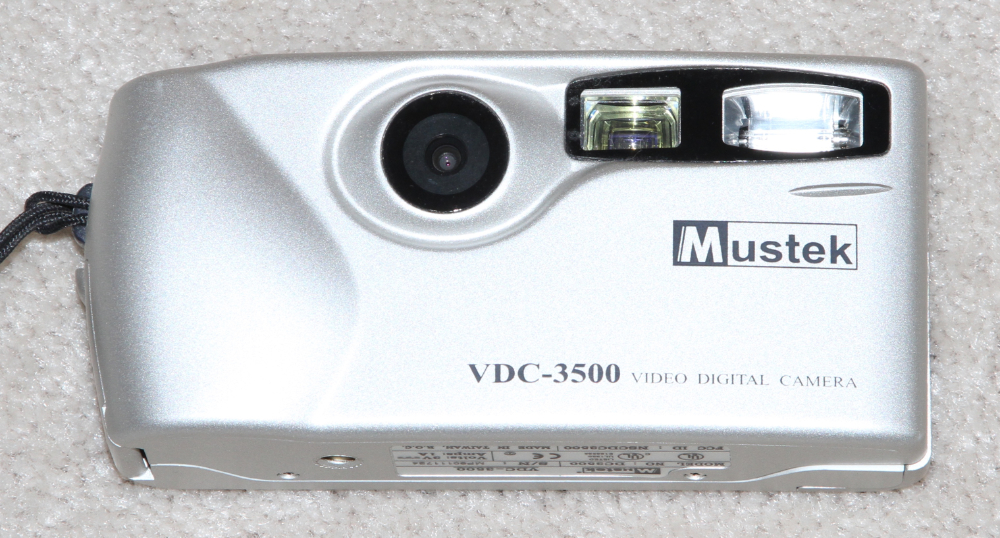
![]()
MUSTEK
VDC 3500 (Relisys Dimera 3500, Trust PhotoCam Plus) - 1998/9. Two variations of this
of this camera were marketed. The upper model shown was apparently
sold only as the Mustek VDC 3500. The lower model shown was also
sold as the Relisys Dimera 3500 and the Trust PhotoCam Plus (see 1998 T-Z). The
Trust PhotoCam version manual is on a CD ROM. All the items on
the CD ROM are dated 1997 or 1998. The items on the CD ROM for
the Relisys Dimera are dated 1997-1999. Thus we assume all
versions of this camera were in the design stage in 1998 or before,
but some may not have been marketed until 1999. 640
x 480 pixel CCD. ISO 200. F/4 35mm lens. Shutter 1/3- to
1/10,000
second. MSRP $349.
http://www.photographyreview.com/mfr/mustek/3-megapixel/PRD_83059_3098crx.aspx
https://www.digitalkameramuseum.de/en/cameras/item/mustek-vdc-3500
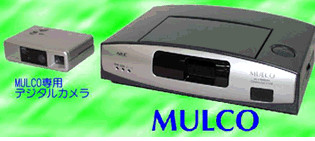
NEC MX-V10 - 1998. The MX-V10 was a non-marketed NEC multimedia system that included a digital camera. NEC, manufacturer of the Internet terminal "MULCO (Marco) that can be use to connect to a TV and a telephone line using the MX-V10. According to the NEC announcement, "The communication of news and topics, will be delivered by commentary plain and concisely. Multimedia and the Internet were carefully selected from among the information flood to satellite institutions." Apparently, the system was intended to allow a customer to use his telephone to hear a news synopsis. The article stated that, "The biggest feature of MULCO is that it is equipped with a detachable digital camera." Specification of the digital camera are: 320 x 240 pixels, 220 000 pixel, 40 shots number, fixed focus, serial transfer. By attaching the digital camera body to capture a photograph, the photograph can then be sent by e-mail. You can also put narration which can be processed such as punching or character writing whereby it is possible to create a 'digital album' in the HTML format. The article went on to say, "Body includes a display output of 640 x 400 dots (256 / 65,536 colors), built-in 33.6kbps modem, external dimensions width 200 x depth 145 x height 50mm, the PCMCIA TYPE II slot. Operation, by remote control equipped with a character keyboard (50 sound array). One Japanese blogger stated sales were intended to begin 4 February 1999. NOT MARKETED.
http://internet.watch.impress.co.jp/www/article/980317/mulco.htm
https://www.digitalkameramuseum.de/en/prototypes-rarities/item/nec-mx-v10
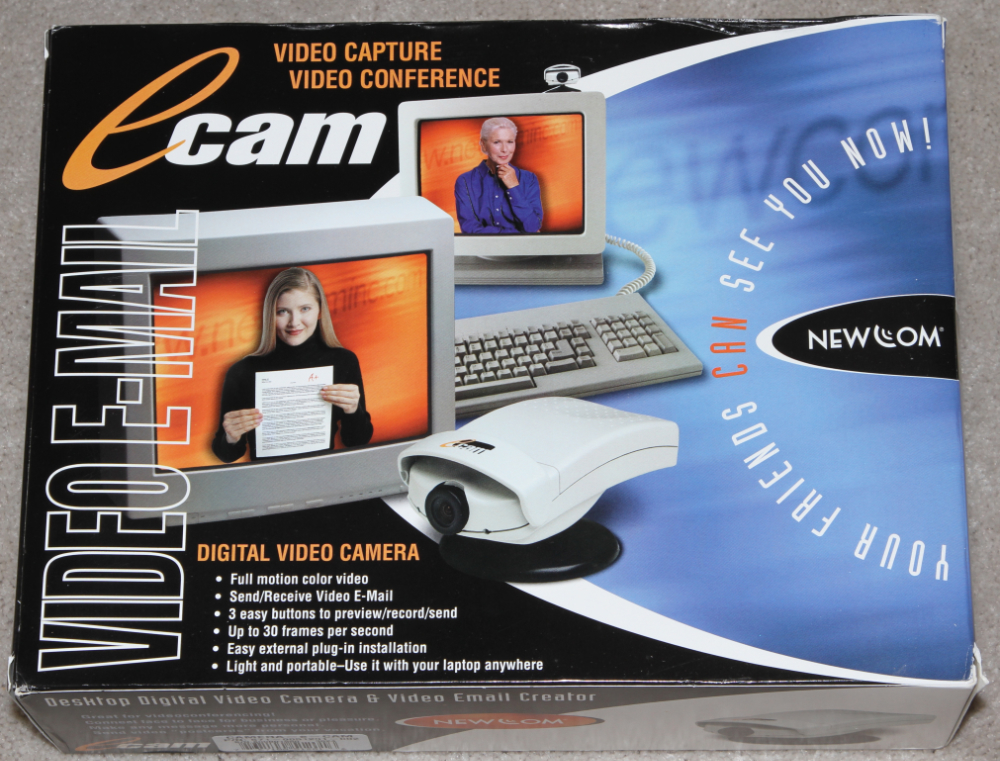
![]()
NEWCOM eCAM - 1998.
The eCam from Newcom Inc. was a desktop digital video camera that could
be used to take videos and email them to others. 508 x 492 pixel
resolution color CCD. Supported video resolutions of 320 x 240,
240 x 180 and 160 x 120. 24 bit still image capture at
resolutions of 1600 x 1200, 1024 x 768, 640 x 480, and 320 x 240.
Video input to any Windows 95 PC with a Bi-directional Parallel
Port. Users stated that quality of the video was not good, the
screen display of the live camera picture was grainy, and it stopped
and started often. MSRP $99.95. (Extremely Rare on U.S. eBay)
https://static.the-gadgeteer.com/ecam-review.html
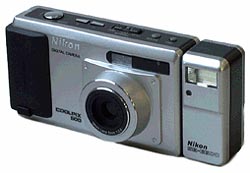
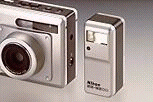
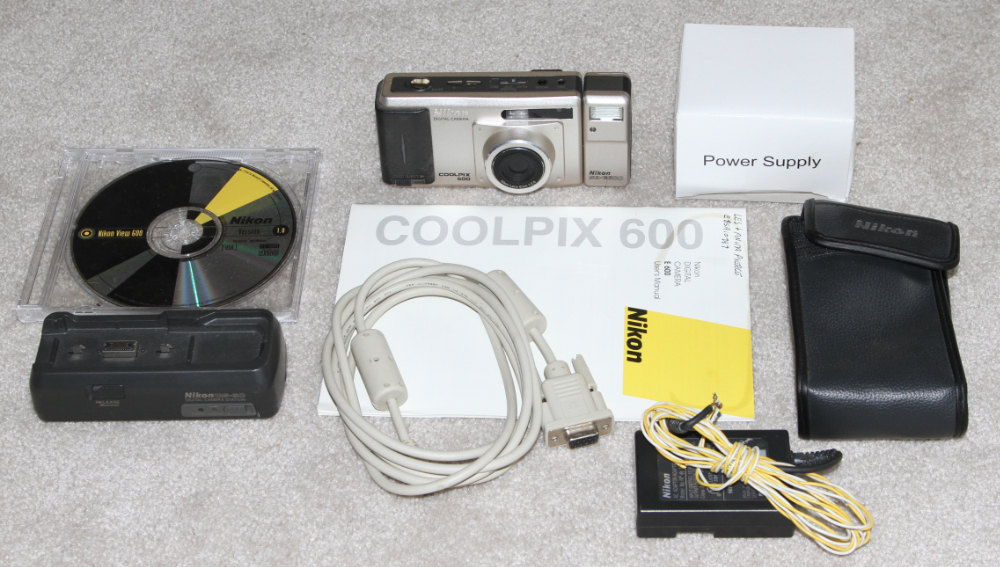
![]()
NIKON
Coolpix 600 (Panasonic PV-DC 1580) - 1998. 1/3-inch
1024 x 768 pixel CCD. ISO 100. F/2.8 36mm autofocus
lens.
Shutter 1/10 to 1/2000 second. Detachable flash. About $600.
http://www.dpreview.com/products/nikon/compacts/nikon_cp600
https://www.digitalkameramuseum.de/en/cameras/category/nikon-2
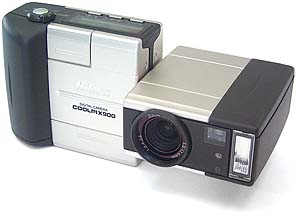
![]()
Nikon CoolPix (E)900
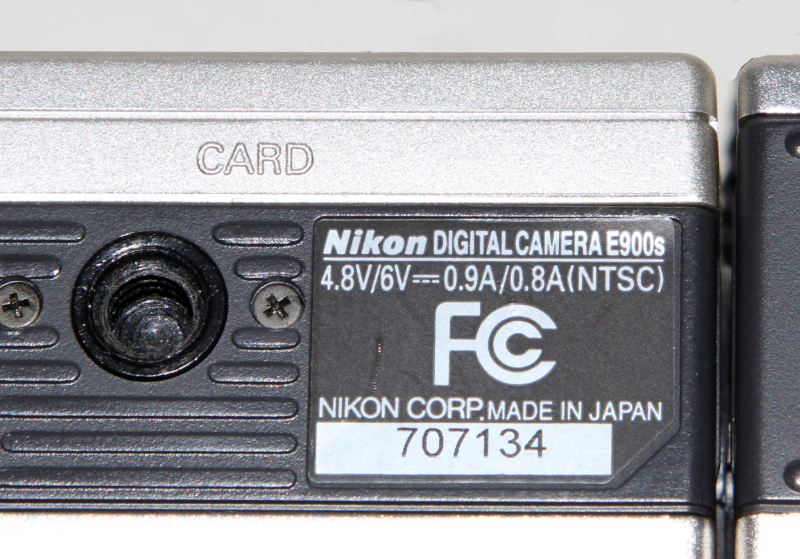
![]()
Nikon CoolPix (E)900s
NIKON
Coolpix (E)900, (E)900s - 1998. The
(E)900s (very rare) and the 910 (below) were slighlty improved versions of the Coolpix
(E)900 - 1260 X 960 pixels versus 1280 X 960 for the 910 and (E)900s as well
a few other minor improvements. ISO 64. F/2.4 autofocus 38mm - 115mm
zoom lens. Shutter 1/4 to 1/750 second. The (E)900s says Coolpix 900 on the front, but (E)900s on the bottom (see above). Nikons on eBay may be advertised with or without the the letter E. The manual for the (E)900s says
(E)900s on the cover (see above), but inside it only refers to the camera
as the CoolPix 900. The (E)900 and (E)900s were black and silver, the
910 below was black and purple (Cosmic Violet).
http://www.mir.com.my/rb/photography/companies/nikon/htmls/models/htmls/slr9698a.htm
https://www.digitalkameramuseum.de/en/cameras/category/nikon-2
https://www.digitalkameramuseum.de/en/cameras/item/nikon-coolpix-910
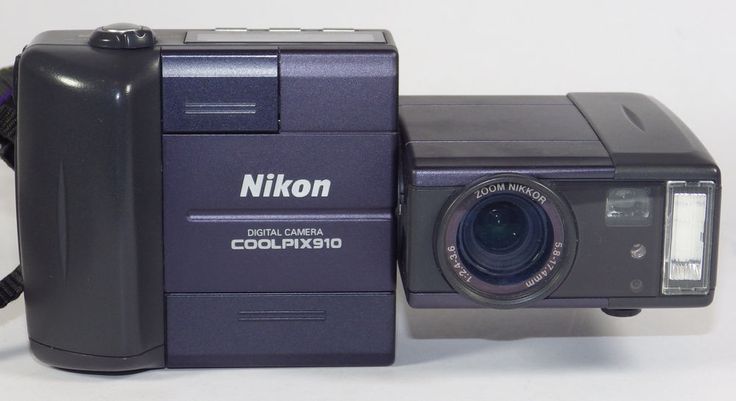
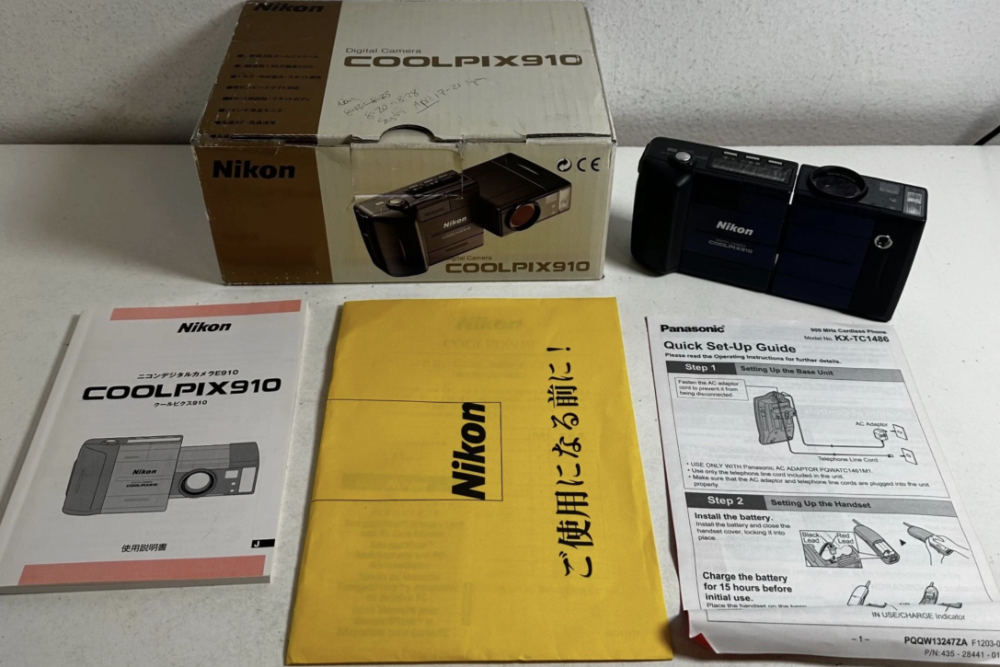
![]()
NIKON
Coolpix 910 - 1998. Slightly
improved version of the Coolpix 900. Specs were the same for the
900s and 910. Black and purple body (Cosmic Violet). CCD
1/2.7-inch
1280 x 960 pixels. ISO 64. F/2.4 autofocus 38mm - 115mm
zoom lens. Shutter 1/4 to 1/750 second. The 900s and 910 had an
external
flash connection, more detailed exposure compensation and several other
improvements. Sold only in Japan. MSRP $800.
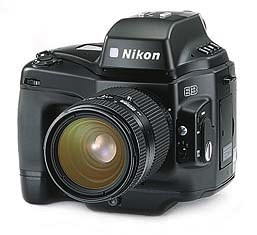
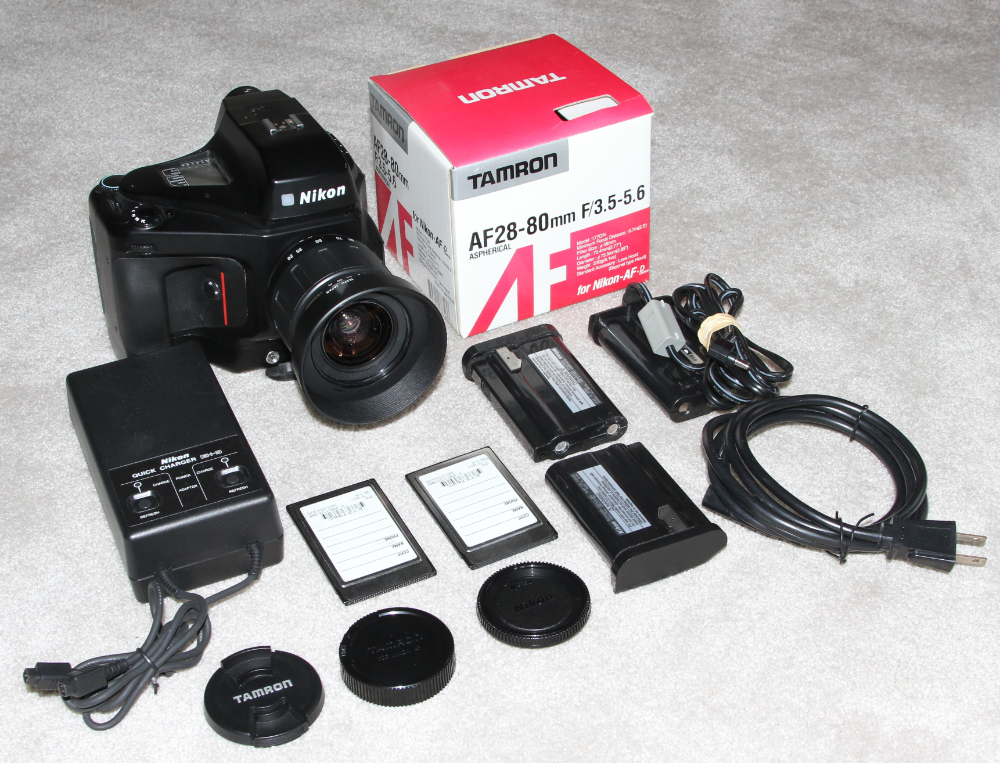
![]()
NIKON
E3, E3s (FUJI DS-560, DS-565) - 1998. SLR.
1280 x 1000 pixel CCD. ISO
800/1600/3200. Internal aperture control f/4.8 to f/38.
Shutter
1/8 to 1/2000 second. The E3s' larger buffer memory allowed it to take
up to 12 consecutive images at 3 frames / sec.
https://www.digitalkameramuseum.de/en/cameras/category/nikon-2
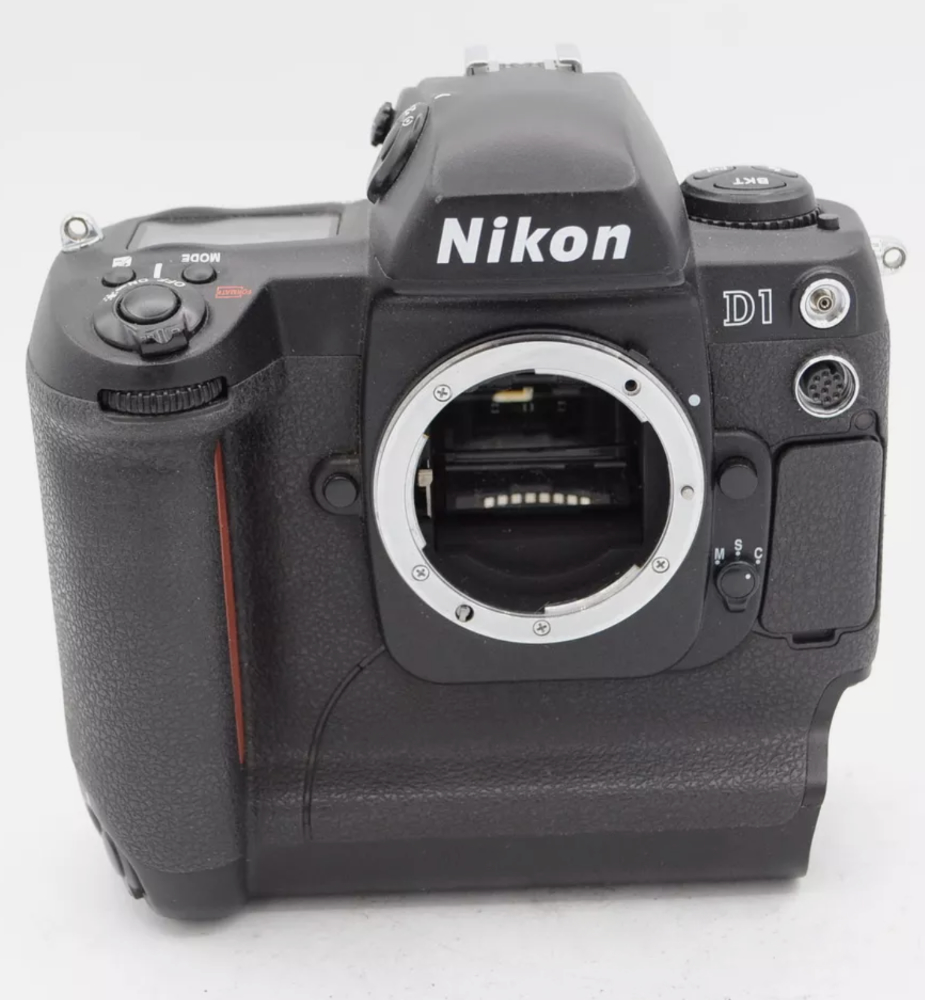

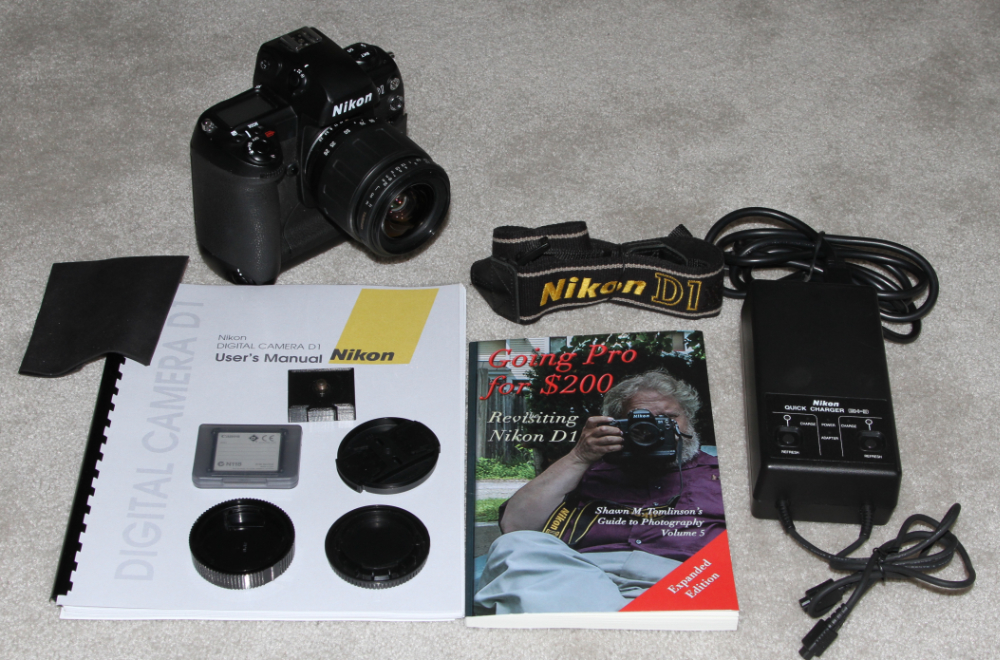
![]()
NIKON D1 - 1998.
Marketed 1999. The D1 was Nikon's reply to Kodak's control of the
professional SLR's market. It was the first digital SLR designed and
built solely by one of the big manufacturers. At the time it was
releasd it was at least half to one third the price of it's
nearest Nikon based competitor, the Kodak DCS 620. It had a 2.74
megapixel 23.7 mm x 16.7 mm CCD which outputed 2.74 million pixels -
2012 x 1324. (Compare this with my first digital camera, a 1998
Sony MVC-FD91 with .786MP CCD - 1024 x 768 pixels, less than 1/3 of the
D1). Focal length multiplier was 1.5x. It had the
world's fastest shutter speed at that time, 1/16000 second, and the
world's fastest continous shooting speed at 4.5 frames per second in
bursts up to 21 frames. MSRP $4,999 for body.
https://www.dpreview.com/reviews/nikond1/2
https://www.digitalkameramuseum.de/en/cameras/item/nikon-d1
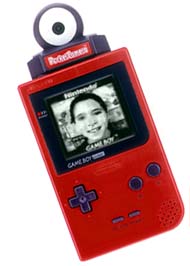

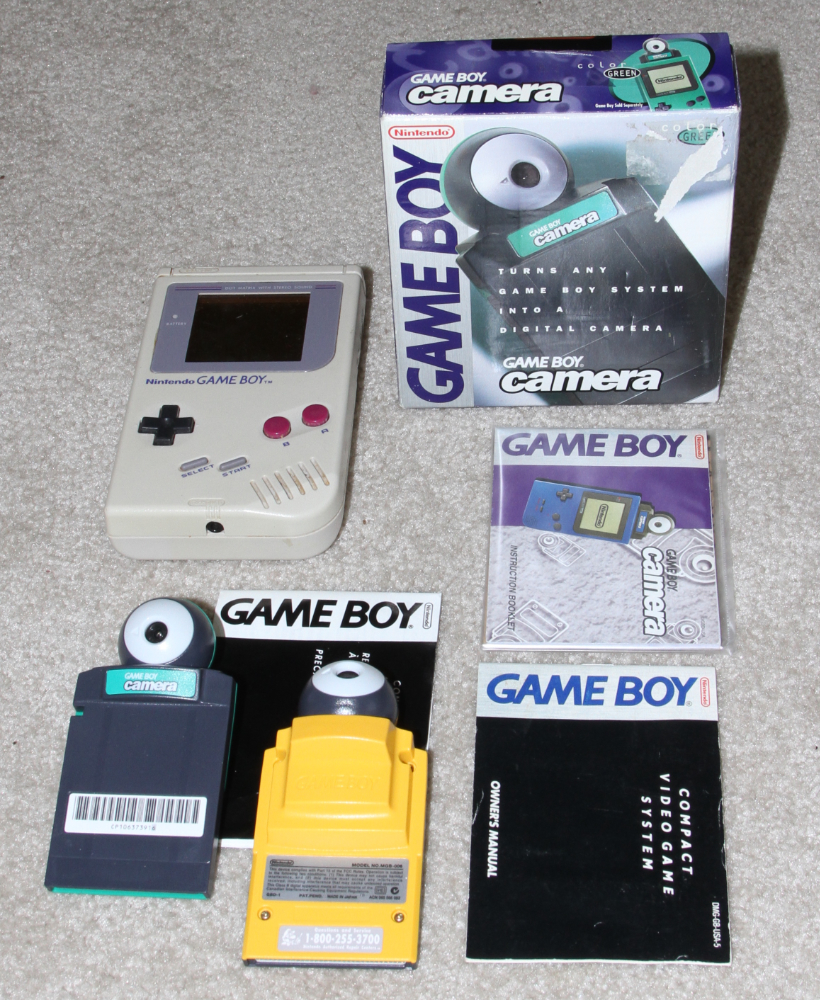
![]()
NINTENDO
GAME BOY CAMERA - 1998.
128 x 128 pixel black & white CMOS sensor. The first company to integrate
an ICIS chip into a commercial product was Nintendo in 1998 with their Game
Boy Camera. The camera plugged into the Nintendo Game Boy as a game cartridge
and allowed users to acquire images and edit them for viewing or output on a
small printer. Four levels of gray scale. The camera lens was able
to rotate 360 degrees. The
original Game Boy Camera, known as Pocket Camera in Japan, was basically a Game
Boy cartridge with a black and white digital camera on top. It stored up to
30 pictures and came with photo/image editing functions like zooming, painting,
cropping, etc. Animation could be done with Pictrip, an animation processing
software built into the Camera. It also came with built-in games including "Ball"
(a juggling game) and "Space Fever II" (a shooter). It also came with
a music mixing/editing program. It could share data with another Game Boy. It
could print photos with the Game Boy Pocket Printer. In 1999 Guinness Book of Records officially recognized it as the world's smallest digital camera. Camera cost
$50.
https://en.wikipedia.org/wiki/Game_Boy
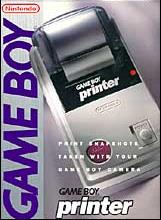

![]()
NINTENDO
GAME BOY PRINTER - 1998.
Known as Pocket Printer in Japan, it was a printer for use with the
Game Boy Pocket camera. It used Print Seal thermal paper, which came in
yellow, blue, and white rolls. The printer plugged into the serial port
(Game Link) on the Game Boy. MSRP $60.
http://en.wikipedia.org/wiki/Game_Boy_Camera
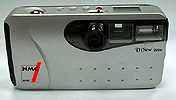
NMC
D-View 1000, 2000, 3000 - 1998/99. These
cameras are variations of the UMAX DC-A1 which was shown at CeBIT
'98. The D-View 3000 had a 1/3-inch
1024
x 786 pixel CCD and an LCD. F2.8 dual fixed-focus
lens.
Shutter 1/30 to 1/10,000 second. The 2000 had a 1/4-inch 640 x
480
pixel CCD and an LCD. The 1000 was the same as the 2000, but
without
the LCD. This same basic camera may have also been sold under the
Soyo brand name. NOT MARKETED.
https://pc.watch.impress.co.jp/docs/article/980327/cebit_4.htm
https://www.digitalkameramuseum.de/en/prototypes-rarities/item/nmc-d-view
https://www.digitalkamera.de/Meldung/Kameras_ohne_Datenblatt/6696.aspx
1998
L-N